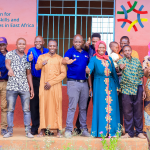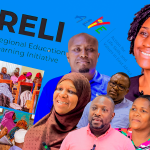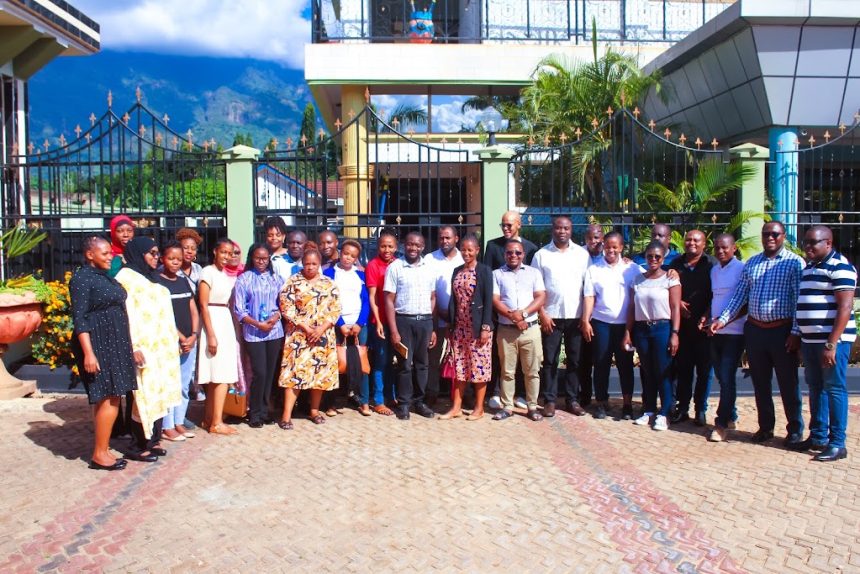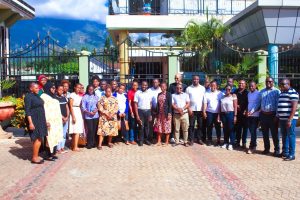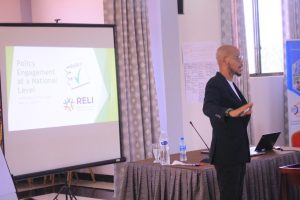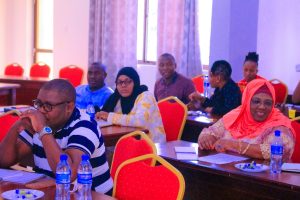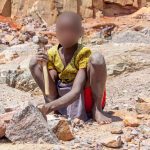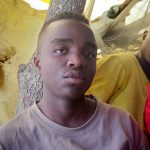By, Hamad Rashid: Sixteen
Institutions, including Non-Governmental Organizations, Civil Society and
universities in Tanzania, who together are members of the Regional Education
Learning Initiative (RELI Network) met in Morogoro to build capacity on how to
strengthen efforts to stimulate education change and promote Life Skills for
young people.
This
training was organized by the Global e-Schools and Communities Initiative
(GESCI) which implements Adapting assessment into policy and learning (ADAPT):
Adolescent 21st Century Skills Project in Kenya, Uganda and
Tanzania, The ADAPT initiative monitors the use of assessments and data
provided by education stakeholders, to be used to bring about policy change
including the development of life skills for young people.
Tanzanian
International Education Expert Henry Kulaya after training participants, spoke
about the importance of education stakeholders engaging in policy in the
education sector.
Henry Kulaya
said: “We are talking about how to measure skills and knowledge in the 21st
Century, on the ability of the child and youth to afford life, so we were
building capacity for these representatives of the NGO’s and different CSOs
within the RELI umbrella, to look at how they can engage with the policy, to
try to bring about changes that will be consistent with the studies that are
being done, what steps to go through, what things need to be considered before
decisions are reviewed by the authorities. So overall, I’m very haapy with how
they have been cooperative in this training and have presented well through the
groups that we have assigned.”
HENRY
KULAYA IN VENUE
Dr.
Shadidu Ndosa, a Kiswahili Language Lecturer at St. John’s University in
Dodoma, during the Interview with the Tanzania Kids Time, He explained the
lessons he had learned in this training.
“We
have learned a lot but for me I have two big things, one is this influence on
policy, personally I feel it is a good thing and this training has come at the
right time, right now in Tanzania we are in the process of changing the
curriculum of Education from Primary School Level to Form Five and Sixth, but
we also have policy changes so the process is still ongoing and it is time to
know, what things to go to influence the policy change and I believe all the
members of this training will go to help
in this process. The last issue is the life skills side, Life Skills are an
important Global agenda and are important issues for our children and youth
today”
Said Dr. Shadidu Ndosa.
Madam Chonge Tukwa works at Girls Livelihood and Mentorship initiative
(GLAMI) an Organization that supports secondary school girls
in tanzania to complete their Education and to build the life skills for them, after participating in the training
said, “For three days we attended this training, I have learned a lot of
things, first we as an Organization have grown up relating to the daughters and
here I understand in this area we need not to forget the daughters that have
special needs, but also to wake up to the whole issue of policy. As we say we
are working with the Society then we should start looking at existing policies,
so that we do not let the special need groups to lack their needs, so that we
have to push policy changes to fit the needs of the community.”
Samuel
Otieno from Kenya, the ADAPT Project Manager in an interview with journalists,
explained how the ADAPT Project is working to achieve policy changes in the
Education Sector.
Samuel
Otieno said “ADAPT is a
Project that seeks to encourage the use of Data and evidence that comes from
the Assessments that are carried out by Education projects here in East Africa,
so we are using these reports, to reform and change the Curricula, so that
teachers can teach in a more effective way, especially when we focus on the
issues of Life Skills and Value for young people that have become so important
now in the world”.
PARTICIPANTS AT THE KIBO PEAK VENUE.
The
Regional Education Initiative (RELI-Africa) operates in three East African
countries: Kenya, Uganda and Tanzania. To date, there are more than 70 members
who are a variety of Non-governmental organisations, Civil Society
organisations, universities and Education institutions who aim at ensuring
inclusive learning for all children in East Africa is fulfilled and every child
living in a difficult environment receives a quality Education.


